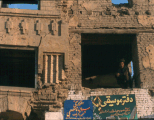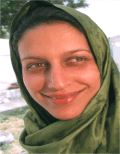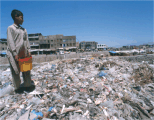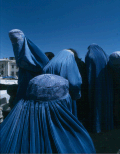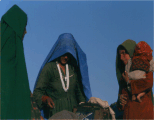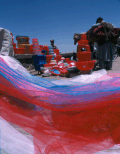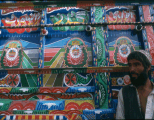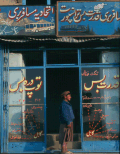A:
 Who hasn’t thought about it at least once in their lives? No, actually I decided to risk everything in Kabul,
the hottest spot on the planet at that time. Today I would go to Baghdad. I said to myself: go on, put your
life on the line. If your destiny is for them to kill you, it’s better for them to do it while you’re working.
It’s what’s called “dying on the battlefield”, a nice death all things considered for a journalist and assiduous
traveller like me. But I obviously didn’t think about any suicide attack.
Who hasn’t thought about it at least once in their lives? No, actually I decided to risk everything in Kabul,
the hottest spot on the planet at that time. Today I would go to Baghdad. I said to myself: go on, put your
life on the line. If your destiny is for them to kill you, it’s better for them to do it while you’re working.
It’s what’s called “dying on the battlefield”, a nice death all things considered for a journalist and assiduous
traveller like me. But I obviously didn’t think about any suicide attack.
Q:
 Did you get the idea for the novel in Kabul?
Did you get the idea for the novel in Kabul?
A:
 No, it was nearly a year after I came back. First of all I published various articles about the post-war period
in the Afghan capital. I took about 5000 photos in three weeks, an average of 250 a day.
No, it was nearly a year after I came back. First of all I published various articles about the post-war period
in the Afghan capital. I took about 5000 photos in three weeks, an average of 250 a day.
Q:
 What was the situation in Kabul like in spring 2002?
What was the situation in Kabul like in spring 2002?
A:
 The war against the Taliban had finished a few months before. The atmosphere was still tense,
but nothing dramatic happened. A few weeks after I left a car bomb exploded in Pashtunistan Square,
where I often used to go and take photos: 50 people were killed.
The war against the Taliban had finished a few months before. The atmosphere was still tense,
but nothing dramatic happened. A few weeks after I left a car bomb exploded in Pashtunistan Square,
where I often used to go and take photos: 50 people were killed.
Q:
 How long did it take you to write your novel?
How long did it take you to write your novel?
A:
 About a year. Not a lot, if you consider that it’s 450 pages long and that I only write at night, between 11 and 2.
I took a few weeks’ sabbatical in Sao Vicente (Cape Verde) and in Piedmont. About three weeks in all, shut inside a
hotel, writing. If I did it full-time I could produce a novel a year, but unfortunately I have to do other things for
a living, obviously in the field of writing and photography.
About a year. Not a lot, if you consider that it’s 450 pages long and that I only write at night, between 11 and 2.
I took a few weeks’ sabbatical in Sao Vicente (Cape Verde) and in Piedmont. About three weeks in all, shut inside a
hotel, writing. If I did it full-time I could produce a novel a year, but unfortunately I have to do other things for
a living, obviously in the field of writing and photography.
Q:
 The protagonist of your novel, Paolo Vida, is very harsh towards Islam.
The protagonist of your novel, Paolo Vida, is very harsh towards Islam.
A:
 He is a desperate man who wants to disappear off the face of the earth. More than Islam it’s
armed extremism and fanaticism that he hates. But he doesn’t like western society either, for it has
destroyed him with its speed and technology. He is a man who hates the whole world.
He is a desperate man who wants to disappear off the face of the earth. More than Islam it’s
armed extremism and fanaticism that he hates. But he doesn’t like western society either, for it has
destroyed him with its speed and technology. He is a man who hates the whole world.
Q:
 What was the most difficult part to write?
What was the most difficult part to write?
A:
 The end. I had at least three possibilities and for a long time I couldn’t decide which to use.
Then I chose the one that I hope you will read in my book, perhaps the least obvious.
The end. I had at least three possibilities and for a long time I couldn’t decide which to use.
Then I chose the one that I hope you will read in my book, perhaps the least obvious.
Q:
 Are you afraid of possible violent reactions from the Muslim community?
Are you afraid of possible violent reactions from the Muslim community?
A:
 My book is not a critical essay, but a novel. The protagonist sometimes says harsh things about
Islam, but it’s not always what I think myself. And then there’s an interesting conclusion …
I only hope that my work will be considered as a whole and not for any single passage that might well appear excessive.
My book is not a critical essay, but a novel. The protagonist sometimes says harsh things about
Islam, but it’s not always what I think myself. And then there’s an interesting conclusion …
I only hope that my work will be considered as a whole and not for any single passage that might well appear excessive.
|

